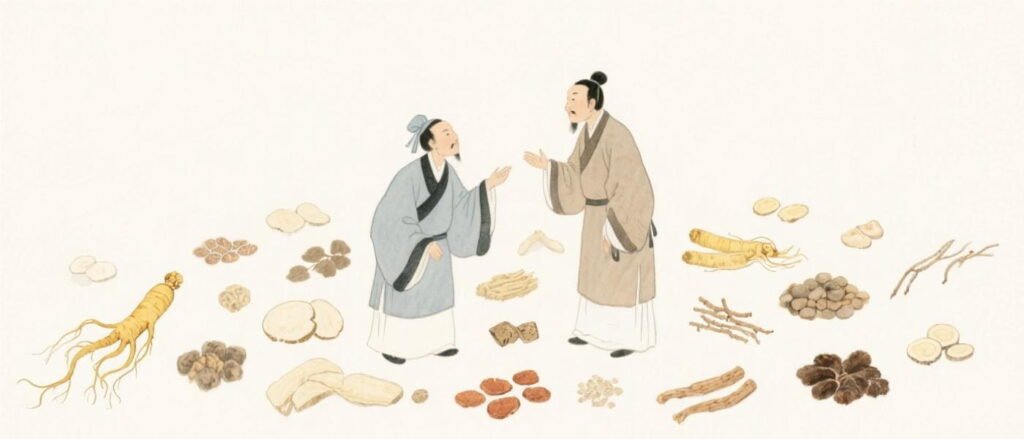
Hei Liu, a villager from our area (his real name was forgotten), suddenly suffered unbearable abdominal pain. He managed to stagger to my doorstep and knelt begging for (used in traditional contexts). I asked: “How did this happen so suddenly?”
He tearfully explained: “Yesterday I ate a large half-bowl of oat noodles. After eating, I worked in the melon field and got extremely thirsty, so I drank two big bowls of cold water. When I returned home, the abdominal pain started. Now my chest feels like it’s pressed by an upside-down bowl—distended and painful to touch, as if being pricked by needles.”
I diagnosed: “This is food stagnation (shí jī). But your chest is blocked like a stone sealing a cave, leaving no gaps. Medicinal (used in traditional contexts) alone might be too weak to break through such a strong blockage.”
He anxiously asked: “Should I just endure it?”
I replied: “To recover, you need someone to support you while walking briskly back and forth across the field hundreds of steps.” He insisted he couldn’t move.
I warned: “If you can’t do this, it’ll be hard to (supports).” After repeated pleas, I prescribed a strong dose of Qi-Regulating Decoction (Chengqi Tang) combined with Barley Malt (Maiya) and Areca Nut (Binglang) to clear obstructions. I emphasized: “You must take three doses.”
After returning home:
- The first dose made his chest feel “like something dropping downward.”
- After the second dose, intense gas suddenly erupted. He rushed to the latrine and evacuated “like a bucket losing its bottom.”
His chest and abdomen emptied completely, and later he was able to shoulder his farming tools and return to work.
Key terms for reference:
- 承气汤 (Chengqi Tang) : Classic formula for severe constipation/blockages
- 麦芽 (Maiya) : Barley Malt (digests starchy foods)
- 槟榔 (Binglang) : Areca Nut (promotes intestinal movement in TCM)

Zui Hua Chuang Medical Cases Source text 54


Leave a Reply